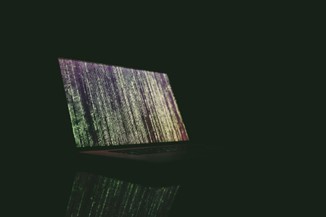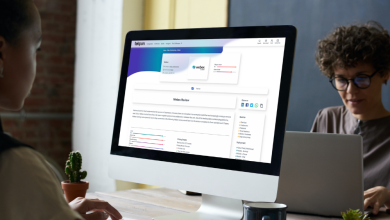Why You Must Know About Digital Footprinting

This is where things take a dark turn. Modern companies understand the value of data coming from digital devices, and blatant invasion of privacy is carefully hidden in confusing privacy policy statements or worse – never disclosed to the user at all. Having a smartphone already forces the user to bid farewell to user privacy, and with digital devices affecting our every step, no one is ever alone.
With each appliance leaving digital footprints associated with our identity, you are not only at the mercy of the biggest tech companies but also under constant threat of cybersecurity attacks if used devices are not set up properly. In this article, we will focus on the dangers of leaving too many digital footprints, how to minimize exposure, and reduce the threats to your online privacy and security. A lot of techniques will revolve around datacenter proxies that can be acquired from a powerful proxy provider or chosen for free online. We will discuss the proper acquisition of datacenter proxies and how to avoid dangerous proxy servers.
How Third Parties use your Digital Footprints

One of the biggest digital footprints online is your decisions that can be traced back to your public IP address. Because it is the gateway for accessing every website on the internet, tech companies can log your visits and look for the same network identity on other websites, pages with third-party cookies that will follow you to offer personalized ads. By following your purchases, time spent on certain websites, and engagement with videos, and other devices in your approximate location, tech companies know your every move. Every decision and its association with other parameters turns a customer into a product while the consumer is too dependent on modern IT solutions to stay off the grid and avoid surveillance.
When paired with other private data segments like your user-agent, the company knows your browser version, operating system, and approximate location. If you use these segments of user information to connect to social media platforms, these businesses will be able to recognize you in the future, even if you change your IP address.
While the control of data by tech companies paints a grim picture for the future, at least they do not have a direct malicious intent. However, if for you, the problem is “out of sight, out of mind”, there are other parties interested in acquiring your IP address, and they have no intention of treating you well. Exposing your IP, even to inexperienced internet users is a bad idea, as the internet is full of tips that can help these parties use DDoS attacks and other disruptive methods to harass you, slow down and even crash your internet connection.
The great example of danger is unprotected and unencrypted HTTP connections. Today, most websites use the secure extension of the Hypertext Transfer Protocol – HTTPS. Visiting, downloading, and uploading data through the HTTP protocol is far more dangerous and a clear indicator that the visited website can endanger your private data. While F IP address is visible during connections via both protocols, HTTP websites are often illegitimate and the digital footprint left on them can be used against you in the future.
How to Hide your Digital Footprints
To avoid threats to your digital devices and all segments of information tied to your identity, we recommend masking your IP address with a proxy server. These intermediary servers reroute your connection, so the traveling packets can make an extra stop to change the information presented in an HTTP header. Instead of accessing the internet through a public IP supplied by your Internet Service Provider (ISP), you can obtain a different identity and choose any location around the world! Keep in mind that the farther you go, the bigger latency you will have to endure. For casual browsing, we recommend using datacenter proxies that are not too far from your location. This way, the taken detour will be shorter, and you will feel a lesser reduction in internet speed.
If you use your internet connection for web scraping or other automated tasks that send more data requests than the average user, choose slower but more secretive residential proxies – IPs that service real devices supplied by real ISPs. To minimize exposure for your browsing sessions, get a user-agent switcher that will change the presentation of visited pages but will not disrupt the visibility of content. Last but not least – stay away from free proxies. If lucky, you will only have to suffer through a horrible internet connection. In other cases, you are not just leaving digital footprints – you are exposing your entire digital identity, the stream of public information, through a server owned by potential cyber criminals.
As the internet finds ways to improve our lives, it forces us to give up privacy. With dependence on new digital devices and software only growing, new generations have to learn more about the web, and the protocols that govern it, to reduce surveillance of tech companies and exploitation of vulnerabilities by cybercriminals. Hackers do a lot of preparation before their attacks, which is why people need to be aware of their digital footprint and its dangers.




